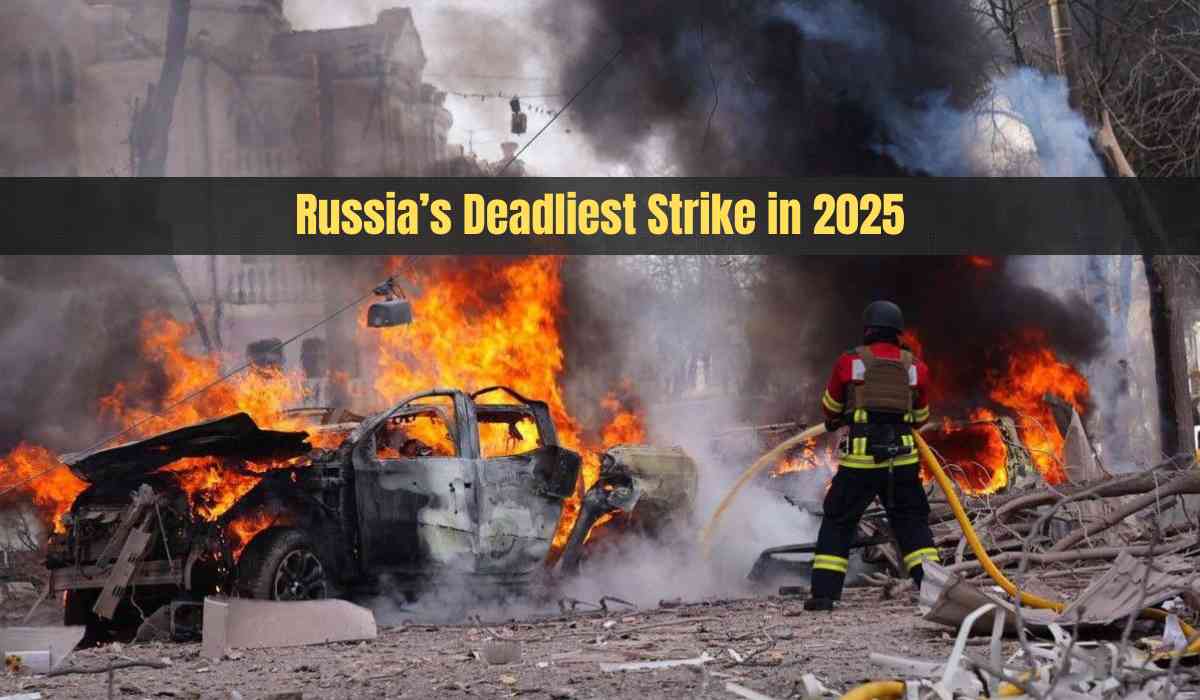In a devastating escalation of the ongoing Russia-Ukraine war, two Russian ballistic missiles struck the heart of the northeastern Ukrainian city of Sumy on Sunday, April 13, killing at least 34 people and wounding 117 others. Ukrainian officials confirmed that the attack, which occurred on Palm Sunday, marked the deadliest assault on civilians in 2025.
The missiles reportedly carried cluster munitions and exploded in a densely populated area where residents were attending church services, enjoying the holiday, or going about their daily routines. The strike has triggered a wave of international condemnation and cast a dark shadow over ongoing peace negotiations involving the Trump administration.
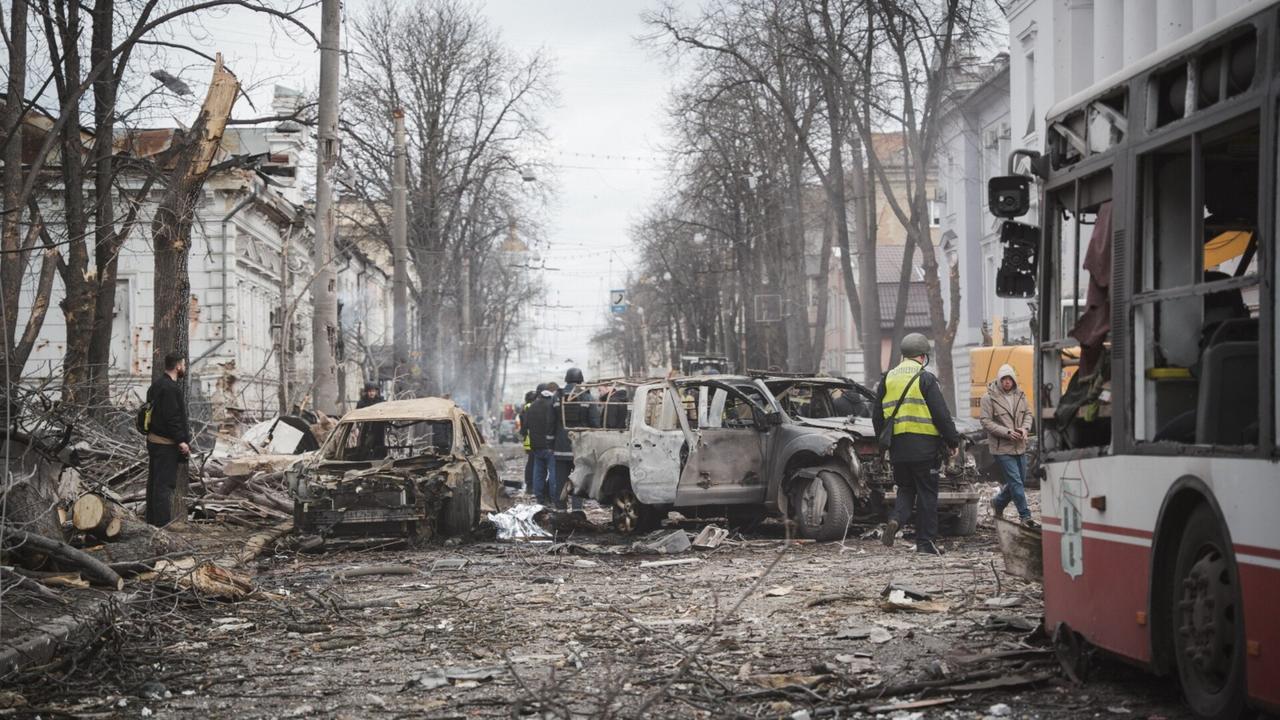
Sumy Under Fire: Details of the Attack
According to Ukrainian authorities, the first missile hit a university building, and the second detonated mid-air approximately 200 meters away, targeting a residential area filled with homes, shops, educational institutions, and public transport.
-
Death toll: 34 confirmed dead, including two children.
-
Injuries: 117 people wounded, with 68 hospitalized and 8 in serious condition.
-
Infrastructure damage: 20 buildings affected, including cafes, shops, apartments, a district court, and a trolleybus filled with passengers.
-
Cluster munitions: Both Ukrainian President Volodymyr Zelensky and his chief of staff Andriy Yermak stated that the missiles carried cluster munitions, used to inflict maximum civilian casualties.
Eyewitnesses described the horror that followed. Iryna Pryykhodko, a local resident, recalled two powerful explosions. “The first explosion was strong, but the second one was even stronger. After that, everything was covered with smoke,” she said.
Natalia Pihul, 52, shared how her mother suffered a head injury while cooking lunch. The missile blast blew out their windows and sent glass flying across their apartment.
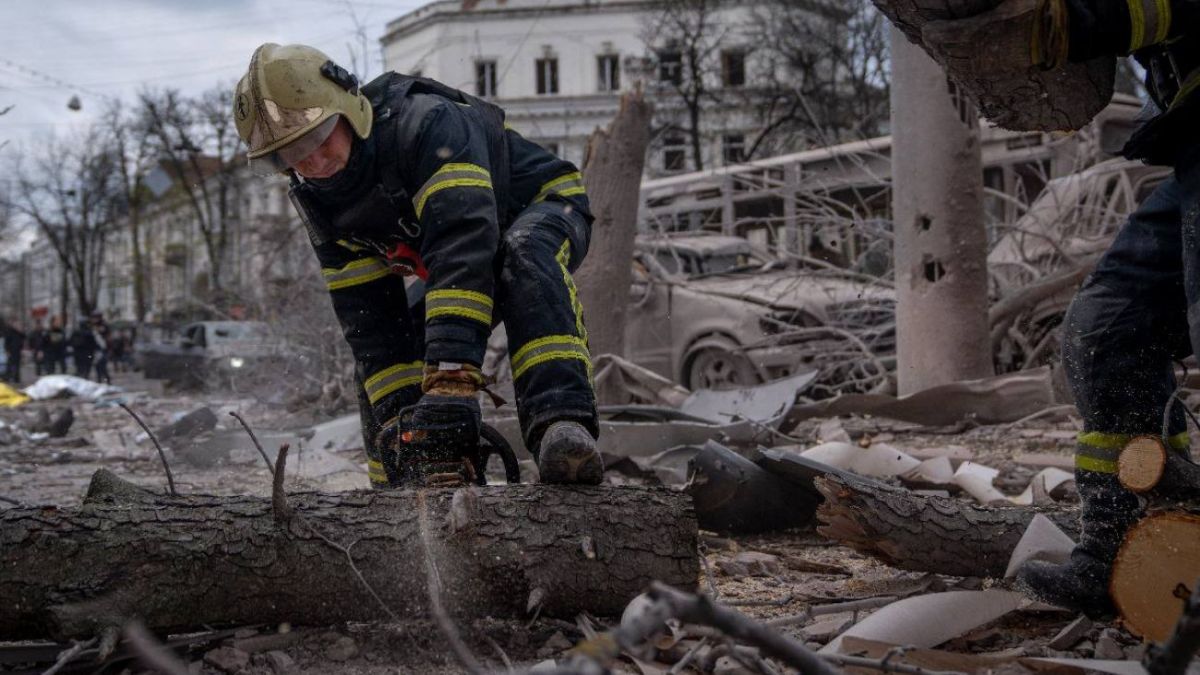
Victims of the Sumy Strike
Among the deceased were:
-
Olena Kohut, an artist with the Sumy National Theatre's orchestra.
-
Liudmyla Hordiienko, a senior official in the regional state tax service.
-
Most of the passengers on the trolleybus were also killed, according to regional head Volodymyr Artyukh.
Footage from the aftermath shows charred vehicles, piles of rubble, and bodies wrapped in emergency blankets scattered across the street. Zelensky’s office and the military administration released videos showing plumes of black smoke, blown-out buildings, bloodied survivors, and emergency sirens wailing as medics rushed to help.
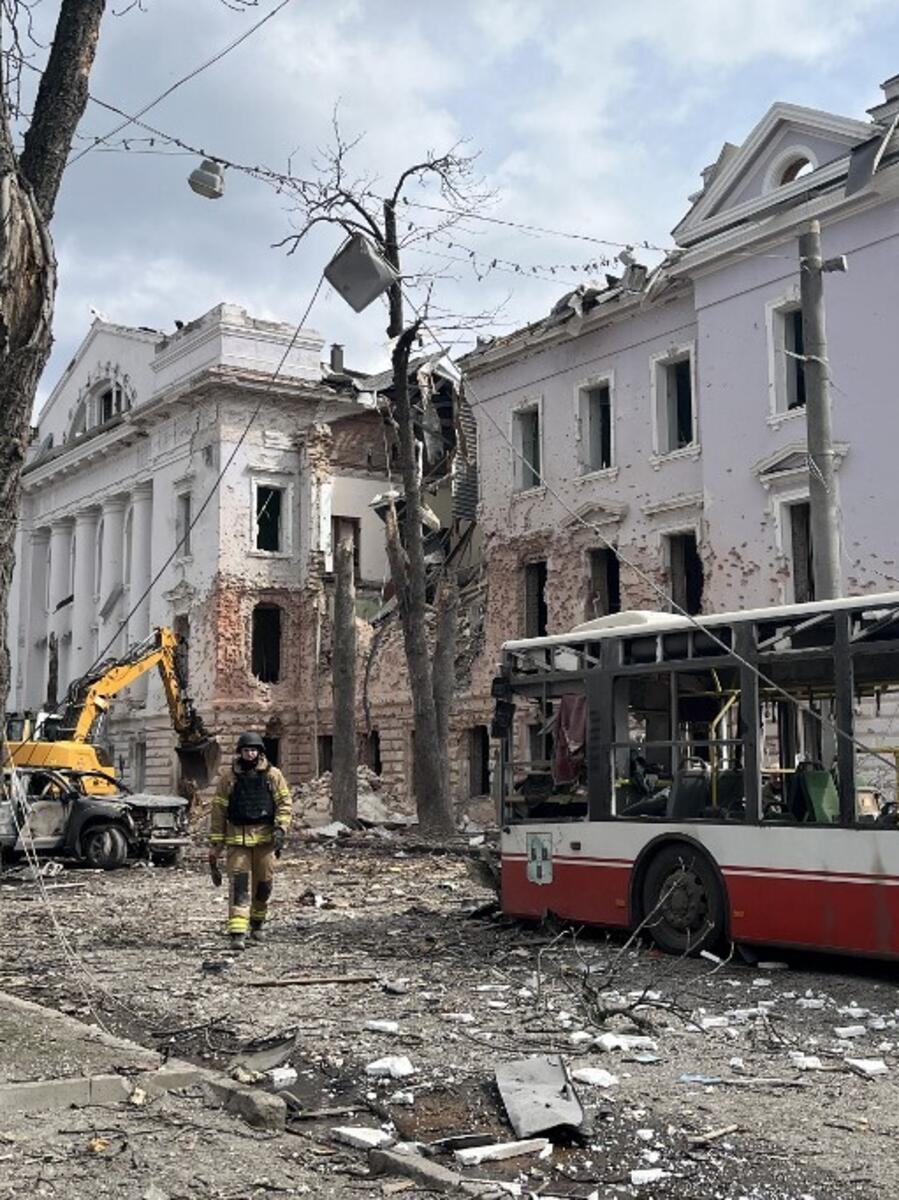
Timing of the Attack: Peace Talks and Palm Sunday
The timing of the attack—Palm Sunday, one of the most important holidays in the Orthodox Christian calendar—deepened the outrage. The strikes coincided with ongoing peace efforts led by the Trump administration, notably a meeting between Trump's special envoy Steve Witkoff and Russian President Vladimir Putin in St. Petersburg just two days earlier.
Ukrainian officials suspect the attack was not a random error. Interior Minister Ihor Klymenko described it as “deliberate destruction of civilians on an important church feast day.” President Zelensky denounced the act as terrorism, declaring, “Russia wants exactly this kind of terror and is dragging out this war.”
International Response: Condemnation and Calls for Action
World leaders quickly condemned the attack. Statements poured in from across the globe:
-
U.S. President Donald Trump said he was told Russia “made a mistake,” calling the incident “terrible.”
-
Secretary of State Marco Rubio expressed condolences and called the attack a “tragic reminder” of why ending the war is crucial.
-
German Chancellor Olaf Scholz stated, “These attacks show just what Russia's supposed readiness for peace is worth.”
-
French President Emmanuel Macron called for “strong measures” to enforce a ceasefire.
-
EU foreign policy chief Kaja Kallas described the strike as a “horrific example of Russia intensifying attacks.”
UN Humanitarian Coordinator for Ukraine Matthias Schmale condemned the incident “in the strongest possible terms,” emphasizing that international humanitarian law strictly prohibits targeting civilians and civilian infrastructure.
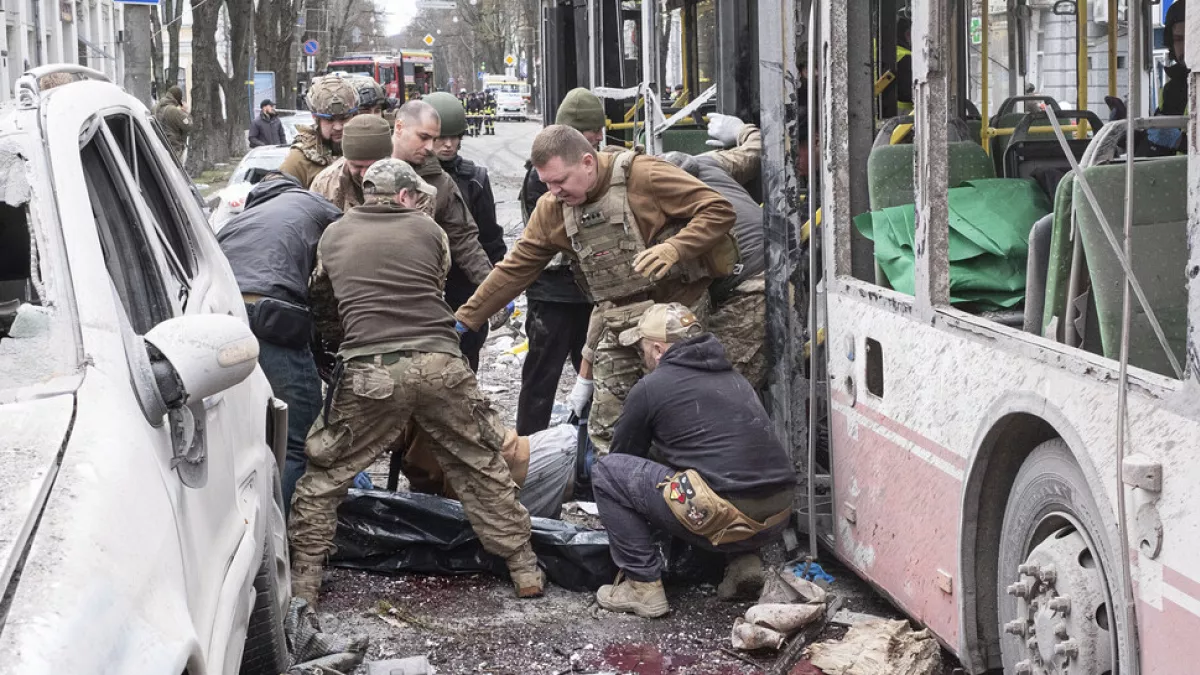
Zelensky Urges U.S. and Global Support
In a Sunday interview with CBS News’ 60 Minutes, President Zelensky issued an emotional appeal to U.S. leaders and citizens.
-
On U.S. support: When asked if he felt America still had Ukraine’s back, Zelensky hesitated before saying, “The pause is doubt. I don't doubt that the people of America are with us, but in a long war, many details are forgotten.”
-
On Trump's role: Zelensky invited former President Trump to visit Ukraine and see the devastation first-hand: “Please come to see people, civilians, warriors, hospitals, churches, children, destroyed or dead.”
-
On air defense: He called for the U.S. to help secure Ukrainian airspace and support an international peacekeeping mission.
Speculation About a Leak: Was the Attack Targeted?
Ukrainian MP Maryana Bezuhla suggested the possibility of an intelligence leak about a gathering of Ukrainian soldiers in Sumy, though no evidence has been provided. Local residents, including Pavriz Manakhov, denied any military presence in the area.
“We live in the city center. There is no military base, there are no soldiers here,” Manakhov told Reuters.
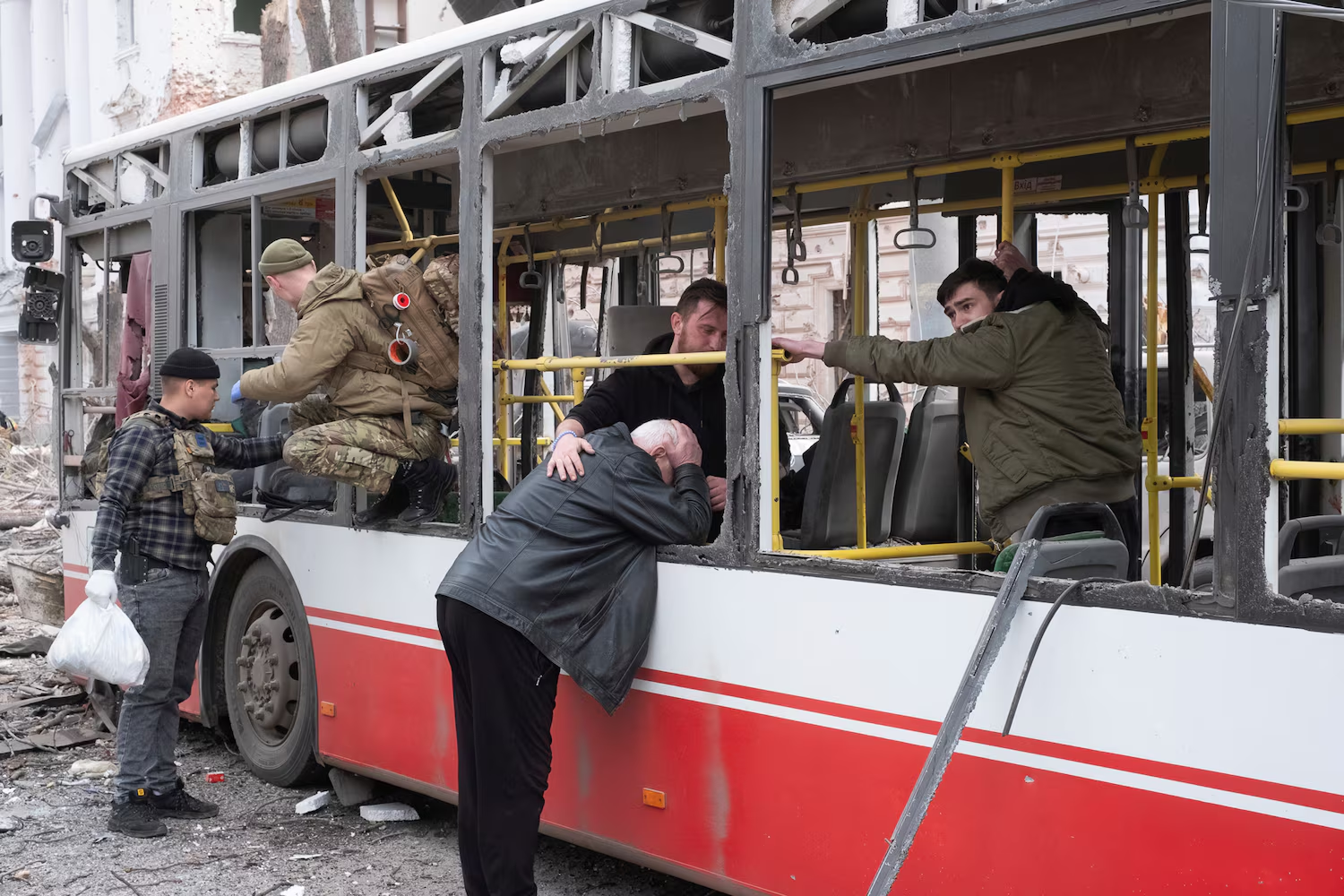
Wider War Context: Escalating Tensions and Prior Strikes
Sunday’s attack comes amid a broader surge in Russian military aggression:
-
In Sumy: Russia has increased air and missile attacks recently, pushing Ukrainian forces out of neighboring Kursk and occupying small settlements in the region.
-
Elsewhere in Ukraine: Russian strikes killed eight people and wounded at least 18 across the Donetsk, Kharkiv, and Kherson regions in the past 24 hours.
-
In Odesa: A separate Russian drone strike injured five and damaged a medical facility.
-
In Kryvyi Rih: Earlier in April, a missile strike on Zelensky’s hometown killed 20 people, including nine children.
Peace Talks: Stalled and Fragile
The Trump administration has initiated multiple rounds of talks with Russian and Ukrainian officials. In late March, the U.S. brokered two tentative ceasefire agreements—one banning strikes on each other’s energy infrastructure—but both sides have accused the other of violations.
Despite the ongoing diplomacy, Zelensky noted on Sunday that “it’s been two months since Putin ignored America’s proposal for a full and unconditional ceasefire.” The attack on Sumy appears to be a severe blow to those peace efforts.
Looking Ahead: Mourning, Justice, and Global Stakes
Acting Sumy Mayor Artem Kobzar declared three days of mourning starting Monday. Ukraine’s Foreign Minister Andrii Sybiha confirmed that Kyiv is sharing all evidence of the attack with international partners and institutions, including the International Criminal Court in The Hague, which is investigating potential war crimes.
As Russia’s invasion of Ukraine enters its third year, with nearly 20% of Ukrainian territory under occupation, the Sumy missile strike underscores both the ongoing human cost of the conflict and the high stakes of stalled diplomacy.
With inputs from agencies
Image Source: Multiple agencies
© Copyright 2025. All Rights Reserved Powered by Vygr Media.

